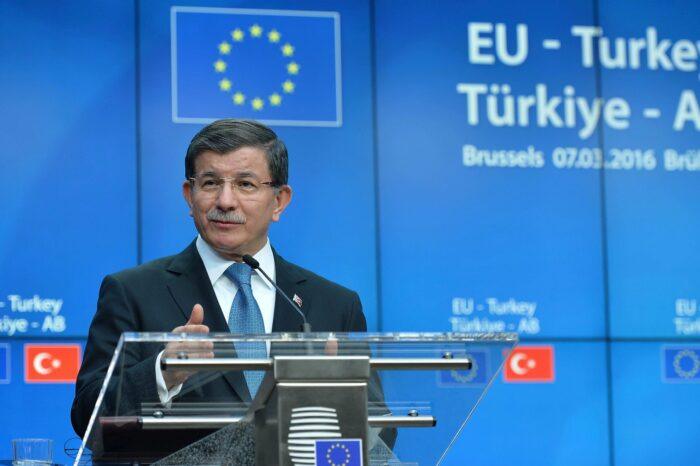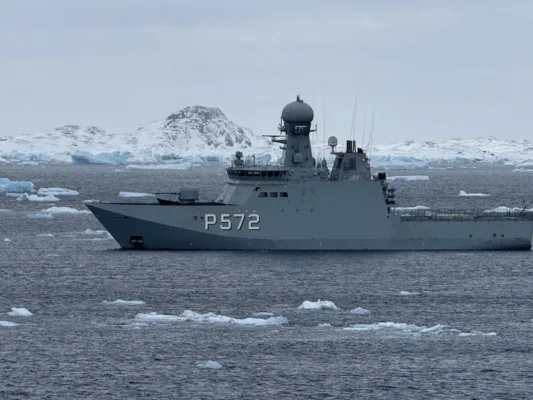We Should Be Paying Attention to Cyprus Reunification Efforts
Efforts to reunify Cyprus gained momentum as world leaders gathered at the annual World Economic Forum in Davos this week. Leaders from both the Greek and Turkish Cypriot governments addressed the Forum in a joint appeal for financial support for their peace efforts. Greek Cypriot leaders are scheduled to visit Turkey next week at the invitation of Turkish Foreign Minister Mevlut Cavusoglu. Given all of this activity in domestic and international arenas, should we be paying attention? The short answer is yes.
First, a little history. Cyprus gained its independence in 1960 in an agreement that established the United Kingdom, Greece, and Turkey as guarantors of Cyprus’s independence, territory, and security. In response to a coup aimed at uniting the island with Greece, Turkey intervened in Cyprus in 1974. Turkey gained control over the northern third of the island, where it stationed military troops and later established the Turkish Republic of Northern Cyprus. The island is now partitioned into two entities, the south governed by the Greek Cypriot government, and is separated by a buffer zone. Reunification efforts have been ongoing for decades as both sides disagree over issues of joint rule, territory, Turkey’s military presence, and its willingness to relinquish its role as guarantor. The two sides came close to an agreement in 2004 under a peace plan brokered by UN Secretary-General Kofi Annan, but the Greek Cypriot population rejected the plan in a referendum after Northern Cyprus approved it.
Though negotiations are mainly taking place between Turkish and Greek Cypriot parties, the implications of reunification reach far beyond the island. Despite its small size, Cyprus holds great strategic importance in terms of security given its location in the Eastern Mediterranean. Cyprus has played an immense role in NATO’s Mediterranean operations and helps secure access for the U.S. Navy’s Sixth Fleet in the Mediterranean with use of its ports. The United Kingdom has used its military bases in Cyprus to launch airstrikes against the Islamic State. Cyprus helps maintain the security of maritime shipping routes in the Eastern Mediterranean that are crucial to the regional and global economy. And since Cyprus is an EU member, reunification would allow cooperation between EU and NATO security apparatuses, which Turkey and Cyprus have both blocked in the past due to the ongoing dispute.
Cyprus also recently discovered a natural gas field off its southern shore, making it a potential emerging force in the energy market. The Aphrodite gas field is believed to contain billions of cubic meters of natural gas, and it is located just miles away from Israel’s undeveloped Leviathan gas field. The two countries have begun to discuss cooperation on natural gas exploration and extraction, and these largely untapped gas fields may provide a viable alternative to energy from the Middle East for Europe, the United States, and potentially even Turkey. European Commission Vice President Maros Sefcovic stated on January 11, “[the European Commission] sees the eastern Mediterranean as very important territory from the point of view of the energy security of Europe.” However, Turkey disputes Cyprus’s claims to the Aphrodite gas field, claiming that the Republic of Cyprus cannot tap into these reserves without the inclusion of Turkish Northern Cyprus. By resolving its dispute with Turkey, Cyprus would be able to effectively extract and transport these natural gas resources.
In the event that reunification efforts do not succeed, the security of the Mediterranean region and greater U.S. interests in the region may be negatively impacted. Tension between Turkey and Greece may escalate, creating problems within NATO. Cyprus would see a permanent Turkish military presence on the island, encouraging it to continue blocking Turkish accession to the EU.
Current enthusiasm among Turkish and Greek Cypriot leaders to reach an agreement, along with statements of support from the Turkish government, signify a changing tide. From a security and energy standpoint, as well as EU-Turkish relations, reunification can be a turning point and a boon to regional peace and stability.





















